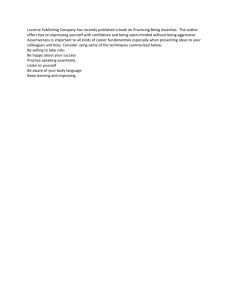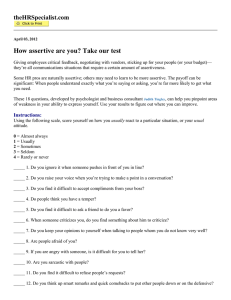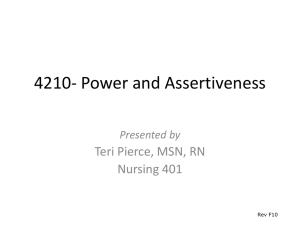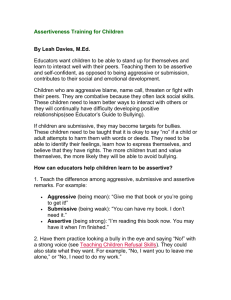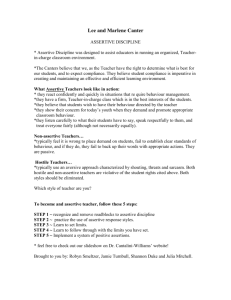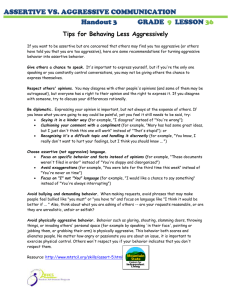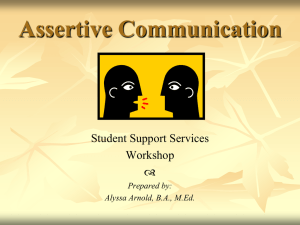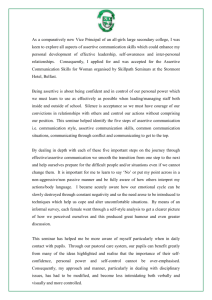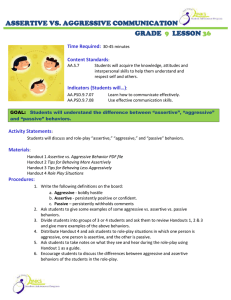Assertive behavior
advertisement
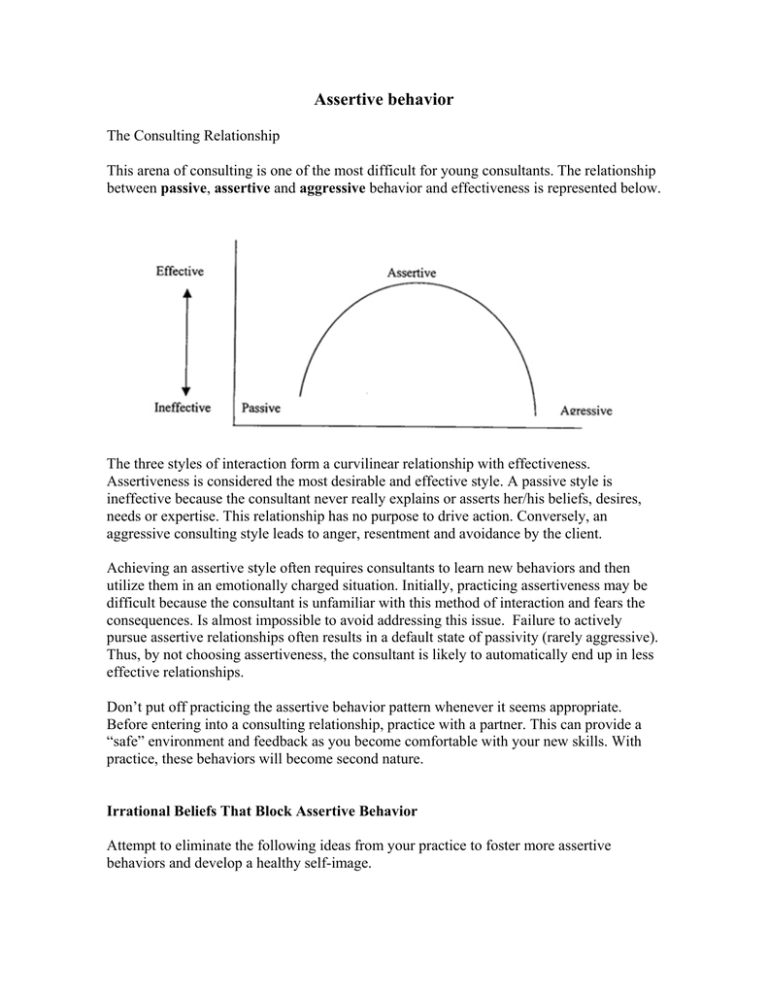
Assertive behavior The Consulting Relationship This arena of consulting is one of the most difficult for young consultants. The relationship between passive, assertive and aggressive behavior and effectiveness is represented below. The three styles of interaction form a curvilinear relationship with effectiveness. Assertiveness is considered the most desirable and effective style. A passive style is ineffective because the consultant never really explains or asserts her/his beliefs, desires, needs or expertise. This relationship has no purpose to drive action. Conversely, an aggressive consulting style leads to anger, resentment and avoidance by the client. Achieving an assertive style often requires consultants to learn new behaviors and then utilize them in an emotionally charged situation. Initially, practicing assertiveness may be difficult because the consultant is unfamiliar with this method of interaction and fears the consequences. Is almost impossible to avoid addressing this issue. Failure to actively pursue assertive relationships often results in a default state of passivity (rarely aggressive). Thus, by not choosing assertiveness, the consultant is likely to automatically end up in less effective relationships. Don’t put off practicing the assertive behavior pattern whenever it seems appropriate. Before entering into a consulting relationship, practice with a partner. This can provide a “safe” environment and feedback as you become comfortable with your new skills. With practice, these behaviors will become second nature. Irrational Beliefs That Block Assertive Behavior Attempt to eliminate the following ideas from your practice to foster more assertive behaviors and develop a healthy self-image. 1. It's not O.K. to express negative feelings. 2. My needs and feelings do not ever come first. 3. I want to be liked and approved by everyone I know. 4. If I am assertive, others will not like me or reject me. 5. If I assert myself and hurt others, I am responsible for their feelings. 6. I feel selfish and uncomfortable when I act assertively and stand up for my rights. 7. It is wrong to turn down legitimate requests; others will think I'm selfish. 8. If I assert myself and people do become angry with me, I will be devastated. 9. It is easier to avoid certain confrontations or situations than to deal with them. 10. At all costs, I must avoid making statements or asking questions that might make me look stupid. 11. If I am assertive, I still won't get what I want all the time anyway. 12. The only way to get what I want is to demand it. 13. If you aren't tough and aggressive with others, they will walk all over you. 14. It is impossible for me to change my behavior—I've been acting this way too long. 15. If I am assertive others will see me as too aggressive or "masculine." 16. If I am non-aggressive, others will see me as "too weak."
